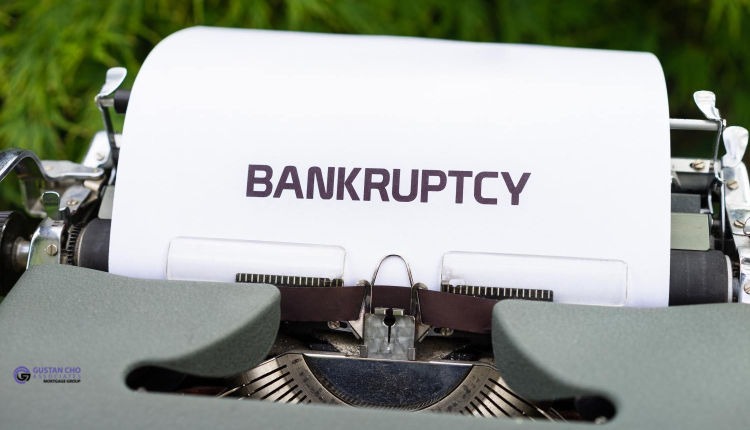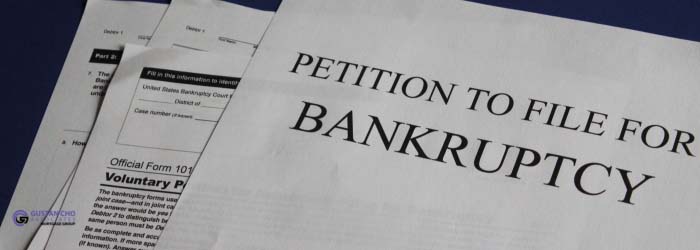Chapter 13 Mortgage Guidelines For FHA and VA Loans
In this article, we will cover Chapter 13 Mortgage Guidelines for FHA and VA loans. Both FHA and VA loans Chapter 13 Mortgage Guidelines are exactly the same. The only two traditional mortgage loan program that allow for manual underwriting are FHA and VA loans. The manual underwriting guidelines for FHA and VA loans are exactly the same. We will also discuss Chapter 13 Mortgage Guidelines similarities and differences on government and conventional loans.
There is only two traditional mortgage loan programs that allow borrowers to get a home purchase and refinance mortgage during Chapter 13 Bankruptcy repayment plan without the Chapter 13 being discharged. They are FHA and VA loans. They both need to be a manual underwrite.
Chapter 13 Mortgage Guidelines on government and conventional loans depends on the individual mortgage loan program. The only two loan program that allow borrowers to be eligible for a mortgage loan during the Chapter 13 Bankruptcy repayment plan are FHA and VA loans. Homebuyers can qualify for a mortgage after Chapter 13 Bankruptcy discharge date with no waiting period on FHA and VA loans. In the following paragraphs, we will cover Chapter 13 Mortgage Guidelines while in an active Chapter 13 repayment plan and after Chapter 13 discharge.
Fannie Mae and Freddie Mac Chapter 13 Mortgage Guidelines
Per Fannie Mae and Freddie Mac Chapter 13 Mortgage Guidelines, you cannot qualify for conventional loans during Chapter 13 Bankruptcy repayment plan. You can only qualify for conventional loans after meeting the waiting period requirements after Chapter 13 Bankruptcy discharge date.
Conventional loans do not allow borrowers to be able to apply and get approved during Chapter 13 repayment plan. You need to wait after the bankruptcy discharge date and meet the mandatory waiting period requirements.
Conventional loans have a two year waiting period after Chapter 13 Bankruptcy discharge date. There is a four year waiting period after Chapter 13 dismissal date on conventional loans. You can qualify for an FHA and/or VA loan during the Chapter 13 Bankruptcy repayment plan without the bankruptcy being discharged. In the following paragraphs, we will cover to explain the Chapter 13 Mortgage Guidelines on government and conventional loans to qualify for a new mortgage.
Ready to Apply for a Mortgage After Chapter 13?
Contact us today to find out how you can qualify for a mortgage and move forward with homeownership!
Chapter 13 Mortgage Guidelines: How Soon I Can Get Mortgage After Filing Bankruptcy?
You need to be in the Chapter 13 Bankruptcy repayment plan for at least 12 months with timely payments. The bankruptcy trustee needs to sign off on the new home purchase and mortgage. Many people worry about the bankruptcy trustee approval. Trustees understand the importance of housing for people, especially petitioners with families.
Trustees want to know homebuyers are able to afford their new housing payment. Bankruptcy trustees also want to feel confident the new homebuyers have the ability to repay.
As per Chapter 13 mortgage guidelines, all Chapter 13 Bankruptcy mortgage underwrites are manual underwriting. FHA and VA manual underwriting guidelines are exactly the same. Manual underwriting guidelines applies. Gustan Cho Associates are experts in manual underwriting on FHA and VA loans. Over 25% of our borrowers are FHA and/or VA manual underwriting borrowers.
Difference Between Chapter 13 Versus 7 Bankruptcy on Government and Conventional Loans
Homebuyers and homeowners can qualify for a home purchase and/or refinance mortgage during and after bankruptcy. There are different agency mortgage guidelines on Chapter 7 versus Chapter 13 Bankruptcy. Chapter 7 Bankruptcy normally takes 90 days from the filing date to get discharged. There are mandatory waiting period after Chapter 7 Bankruptcy discharged date on government and conventional loans. You cannot qualify for a mortgage while the Chapter 7 is not discharged. Chapter 7 Bankruptcy is often referred to as total liquidation. You need to take the Chapter 7 Bankruptcy means test to see if you are eligible to file. The means test will determine whether or not your income is eligible to file Chapter 7.
Can I Get a Mortgage After Bankruptcy?
Based on Chapter 13 mortgage guidelines, people with little to no income or no job and little to no assets are the ideal candidates for a Chapter 7 Bankruptcy. Otherwise you need to file Chapter 13 Bankruptcy which is a debt restructure program over three to five years. The bankruptcy trustee assigned will determine what percentage of your income will be set aside to pay your creditors over a three to five year term. After the end of the term, the remaining debts is discharged and the person is debt free.
Borrowers trying to qualify for a mortgage after bankruptcy need timely payments after bankruptcy and no late payments. Rebuilt and re-established credit is a must to get an approve/eligible per automated underwriting system after bankruptcy.
People with a full time job and assets to protect are the best candidates for Chapter 13 Bankruptcy. FHA and VA loans require a two year waiting period after Chapter 7 bankruptcy to qualify for FHA and/or VA loans. USDA loans require a 3 year waiting period after Chapter 7. Conventional loans require a 4 year waiting period after Chapter 7 Bankruptcy. In the following paragraphs, we will discuss the Chapter 13 Mortgage Guidelines on government and conventional loans.
HUD and VA Agency Chapter 13 Mortgage Guidelines on VA and FHA Loans
Gustan Cho Associates have helped thousands of borrowers get an FHA and/or VA loan approval during the Chapter 13 Bankruptcy repayment plan. There was not a single loan officer at Gustan Cho Associates where a trustee not approve a mortgage loan. Trustees will always sign off on a modest traditional home purchase. Bankruptcy trustees will also approve refinance during the Chapter 13 Bankruptcy repayment period. This holds true even though the Chapter 13 Bankruptcy is not discharged.
FHA and VA does not have any waiting period requirements after Chapter 13 Bankruptcy discharged date. If the Chapter 13 Bankruptcy discharged date has not been discharged for at least two years, it needs to be a manual underwrite. USDA loans do not allow borrowers to qualify for a USDA loan during Chapter 13 Bankruptcy repayment plan.
All FHA and/or VA loans during Chapter 13 Bankruptcy repayment plan need to be manual underwriting. FHA and VA manual underwriting guidelines are exactly the same. You do not need trustee approval after Chapter 13 Bankruptcy discharged date to qualify for an FHA or VA loan. There is a three year waiting period after Chapter 13 Bankruptcy discharged date to qualify for a USDA loan. There is a four year waiting period after Chapter 13 Bankruptcy dismissal date to qualify for a conventional loans. The waiting period to qualify for a conventional loans is two years after Chapter 13 Bankruptcy discharged date.
Have You Completed or Are You in Chapter 13? You Could Qualify for a Fannie Mae or Freddie Mac Mortgage
Contact us now to explore how you can qualify for a mortgage through Fannie Mae or Freddie Mac.
Fannie Mae and Freddie Mac Chapter 13 Mortgage Guidelines on Conventional Loans
Fannie Mae and Freddie Mac are not government-backed loans. Conventional loans need to conform to Fannie Mae and/or Freddie Mac Agency Guidelines. Fannie Mae and Freddie Mac are government-sponsored enterprises (GSE) and sets the conforming standards on conventional loans. Per Fannie Mae and Freddie Mac Agency Chapter 13 Mortgage Guidelines on Conventional loans, borrowers cannot qualify for conventional loans during Chapter 13 Bankruptcy repayment period.
If the borrowers has a Chapter 13 Bankruptcy dismissal versus a discharge, the waiting period is four years from the dismissal date to qualify for a conventional loan.
Borrowers need to wait two years after Chapter 13 Bankruptcy discharged date to qualify for a conventional loan after Chapter 13 Bankruptcy discharged date. No payments during and after Chapter 13 Bankruptcy is allowed to get an approve/eligible per automated underwriting system. Re-established and rebuilt credit after bankruptcy is highly recommended for borrowers to get an approve/eligible per automated underwriting system.
Frequently Asked Questions (FAQs)
1. Can I avail myself of an FHA or VA Loan while in Chapter 13 bankruptcy?
VA Loan: Like FHA, you can apply for a VA loan while in Chapter 13 bankruptcy. The same 12-month on-time payment requirement applies, and you must also get permission from the bankruptcy court.
2. How Long After Chapter 13 Bankruptcy Can I Get an FHA or VA Loan?
VA Loan: VA guidelines are similar, allowing for loan approval one year into the repayment plan with court approval or two years post-discharge.
3. What Are the Credit Score Requirements for FHA and VA Loans During Chapter 13?
VA Loan: The VA doesn’t set a minimum credit score for VA loans, but lenders often look for a score of at least 620 during Chapter 13.
4. What Documentation is Needed to Apply for an FHA or VA Loan During Chapter 13?
A complete copy of your Chapter 13 bankruptcy filing.
Proof of on-time payment history for at least 12 months.
Written permission from the bankruptcy court to proceed with the loan.
Income verification, such as pay stubs, tax returns, and W-2s.
Credit reports showing your current debts and payment history.
5. How Does a Chapter 13 Bankruptcy Affect My Debt-to-Income Ratio (DTI) for FHA and VA Loans?
VA Loan: The VA doesn’t set a maximum DTI, but most lenders prefer it to be 41% or lower. The Chapter 13 payment will be included in your DTI calculation.
6. Is it possible to Refinance My Mortgage While in Chapter 13?
VA Loan: VA loans allow for refinancing during Chapter 13 under similar conditions, with court approval and consistent on-time payments. This is based on the chapter 13 mortgage guidelines.
7. How Will a Chapter 13 Bankruptcy Impact My Interest Rate for FHA or VA Loans?
8. What Happens If I Miss a Payment During Chapter 13 After Getting an FHA or VA Loan?
9. What Are the Benefits of Getting an FHA or VA Loan in Chapter 13?
VA Loan: VA loans provide the benefit of no down payment and no mortgage insurance, along with competitive interest rates.
10. Can I Get Pre-Approved for an FHA or VA Loan While in Chapter 13?
Qualify For a Mortgage With a Lender Licensed In 48 States With No Overlays
We have discussed in the earlier paragraph there is a four year waiting period after Chapter 7 Bankruptcy discharged date to qualify for a conventional loan. We also discuss Chapter 13 mortgage guidelines. Again, rebuilt and re-established credit is key to get an approve/eligible per automated underwriting system after bankruptcy. Do not be late on any monthly payments after bankruptcy. Late payments after bankruptcy is the kiss of death.
The team at Gustan Cho Associates is available 7 days a week, evenings, weekends, and holidays. Gustan Cho Associates are mortgage bankers and correspondent lenders with the ability to broker non-QM and alternative financing mortgage loan programs.
Most lenders will not approve anyone with late payments after bankruptcy and/or foreclosure. However, Gustan Cho Associates can help people with one or two late payments after bankruptcy to qualify for government and/or conventional loans. If you have further questions about Chapter 13 mortgage guidelines or to qualify for a mortgage after bankruptcy, please contact us at Gustan Cho Associates at 800-900-8569 or text us for a faster response. Or email us at gcho@gustancho.com.
Want to Buy a Home After Chapter 13 Bankruptcy? Fannie Mae and Freddie Mac May Have the Solution
Reach out to us today for guidance on how to qualify for a home loan through Fannie Mae or Freddie Mac.








